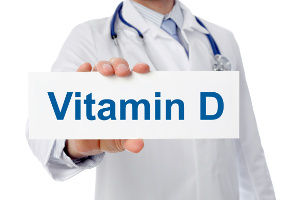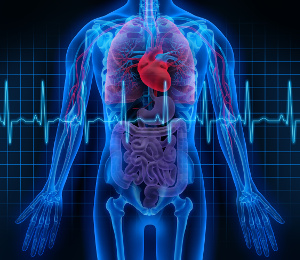afterLoad (456.48KB) (1.88ms)
afterInitialise (1.28MB) (41.33ms)
afterRoute (856.95KB) (11.23ms)
beforeRenderComponent com_content (35.24KB) (858μs)
Before Access::preloadComponents (all components) (69.88KB) (799μs)
After Access::preloadComponents (all components) (98.07KB) (886μs)
Before Access::preloadPermissions (com_content) (1.6KB) (23μs)
After Access::preloadPermissions (com_content) (3.29MB) (6.24ms)
Before Access::getAssetRules (id:62 name:com_content.category.20) (130.65KB) (132μs)
After Access::getAssetRules (id:62 name:com_content.category.20) (7.38KB) (113μs)
Before Access::getAssetRules (id:8 name:com_content) (51.77KB) (12.67ms)
After Access::getAssetRules (id:8 name:com_content) (6.17KB) (36μs)
afterRenderComponent com_content (1.36MB) (67.61ms)
afterDispatch (32.63KB) (2.46ms)
beforeRenderRawModule mod_articles_category (READ MORE...) (350.71KB) (5.48ms)
afterRenderRawModule mod_articles_category (READ MORE...) (84.63KB) (41.44ms)
beforeRenderRawModule mod_tags_popular (Search) (4.81KB) (35μs)
afterRenderRawModule mod_tags_popular (Search) (6.57KB) (22.88ms)
beforeRenderRawModule mod_custom (BOOST YOUR IMMUNE DEFENSE) (960B) (34μs)
afterRenderRawModule mod_custom (BOOST YOUR IMMUNE DEFENSE) (4.2KB) (243μs)
beforeRenderRawModule mod_custom (Are you taking supplements) (736B) (13μs)
afterRenderRawModule mod_custom (Are you taking supplements) (1.03KB) (26μs)
beforeRenderRawModule mod_articles_category (Get additionel and more detailed knowledge about) (8.41KB) (22μs)
afterRenderRawModule mod_articles_category (Get additionel and more detailed knowledge about) (44.41KB) (3.45ms)
beforeRenderRawModule mod_custom (Antiaging) (6.97KB) (34μs)
afterRenderRawModule mod_custom (Antiaging) (1KB) (50μs)
beforeRenderRawModule mod_custom (Exercise) (720B) (11μs)
afterRenderRawModule mod_custom (Exercise) (1.02KB) (23μs)
beforeRenderRawModule mod_custom (Check this before you buy a Q10 product) (752B) (10μs)
afterRenderRawModule mod_custom (Check this before you buy a Q10 product) (944B) (21μs)
beforeRenderModule mod_articles_category (READ MORE...) (267.89KB) (2.43ms)
afterRenderModule mod_articles_category (READ MORE...) (1.25KB) (88μs)
beforeRenderModule mod_tags_popular (Search) (5.17KB) (16μs)
afterRenderModule mod_tags_popular (Search) (2.52KB) (27μs)
beforeRenderModule mod_custom (BOOST YOUR IMMUNE DEFENSE) (1.31KB) (12μs)
afterRenderModule mod_custom (BOOST YOUR IMMUNE DEFENSE) (1.28KB) (22μs)
beforeRenderModule mod_custom (Are you taking supplements) (352B) (9μs)
afterRenderModule mod_custom (Are you taking supplements) (1.28KB) (21μs)
beforeRenderModule mod_articles_category (Get additionel and more detailed knowledge about) (8.03KB) (17μs)
afterRenderModule mod_articles_category (Get additionel and more detailed knowledge about) (1.31KB) (19μs)
beforeRenderModule mod_custom (Antiaging) (7.33KB) (10μs)
afterRenderModule mod_custom (Antiaging) (1.27KB) (19μs)
beforeRenderModule mod_custom (Exercise) (336B) (9μs)
afterRenderModule mod_custom (Exercise) (1.25KB) (20μs)
beforeRenderModule mod_custom (Check this before you buy a Q10 product) (352B) (9μs)
afterRenderModule mod_custom (Check this before you buy a Q10 product) (1.28KB) (19μs)
beforeRenderRawModule mod_menu (Main menu-US) (28.53KB) (561μs)
afterRenderRawModule mod_menu (Main menu-US) (157.05KB) (1.62ms)
beforeRenderModule mod_menu (Main menu-US) (720B) (6μs)
afterRenderModule mod_menu (Main menu-US) (4.36KB) (64μs)
beforeRenderRawModule mod_languages (Sprogskift) (3.44KB) (18μs)
afterRenderRawModule mod_languages (Sprogskift) (29.88KB) (1.9ms)
beforeRenderModule mod_languages (Sprogskift) (720B) (7μs)
afterRenderModule mod_languages (Sprogskift) (5.31KB) (25μs)
beforeRenderRawModule mod_finder () (6.34KB) (14μs)
afterRenderRawModule mod_finder () (154.54KB) (2.61ms)
beforeRenderModule mod_finder () (704B) (7μs)
afterRenderModule mod_finder () (3.29KB) (43μs)
beforeRenderRawModule mod_custom () (6.62KB) (157μs)
afterRenderRawModule mod_custom () (90.52KB) (1.15ms)
beforeRenderModule mod_custom () (704B) (9μs)
afterRenderModule mod_custom () (1.23KB) (60μs)
beforeRenderRawModule mod_menu (Main menu-US) (5.07KB) (168μs)
afterRenderRawModule mod_menu (Main menu-US) (5.8KB) (711μs)
beforeRenderModule mod_menu (Main menu-US) (720B) (4μs)
afterRenderModule mod_menu (Main menu-US) (3.75KB) (49μs)
beforeRenderRawModule mod_languages (Sprogskift Mobil) (912B) (18μs)
afterRenderRawModule mod_languages (Sprogskift Mobil) (3.89KB) (903μs)
beforeRenderModule mod_languages (Sprogskift Mobil) (720B) (5μs)
afterRenderModule mod_languages (Sprogskift Mobil) (1.27KB) (34μs)
beforeRenderRawModule mod_finder () (2.3KB) (12μs)
afterRenderRawModule mod_finder () (6.29KB) (721μs)
beforeRenderModule mod_finder () (704B) (6μs)
afterRenderModule mod_finder () (1.23KB) (55μs)
beforeRenderRawModule mod_custom () (8.66KB) (197μs)
afterRenderRawModule mod_custom () (904B) (168μs)
beforeRenderModule mod_custom () (704B) (2μs)
afterRenderModule mod_custom () (2.43KB) (26μs)
beforeRenderRawModule mod_custom () (688B) (82μs)
afterRenderRawModule mod_custom () (896B) (98μs)
beforeRenderModule mod_custom () (704B) (3μs)
afterRenderModule mod_custom () (2.71KB) (21μs)
afterRender (184.7KB) (3.15ms)
| 1 x afterRenderComponent com_content (1.36MB) (28.38%) | 67.61ms |
| 1 x afterRenderRawModule mod_articles_category (READ MORE...) (84.63KB) (17.39%) | 41.44ms |
| 1 x afterInitialise (1.28MB) (17.35%) | 41.33ms |
| 1 x afterRenderRawModule mod_tags_popular (Search) (6.57KB) (9.6%) | 22.88ms |
| 1 x Before Access::getAssetRules (id:8 name:com_content) (51.77KB) (5.32%) | 12.67ms |
| 1 x afterRoute (856.95KB) (4.71%) | 11.23ms |
| 1 x After Access::preloadPermissions (com_content) (3.29MB) (2.62%) | 6.24ms |
| 1 x beforeRenderRawModule mod_articles_category (READ MORE...) (350.71KB) (2.3%) | 5.48ms |
| 1 x afterRenderRawModule mod_articles_category (Get additionel and more detailed knowledge about) (44.41KB) (1.45%) | 3.45ms |
| 1 x afterRender (184.7KB) (1.32%) | 3.15ms |
| 1 x afterRenderRawModule mod_finder () (154.54KB) (1.1%) | 2.61ms |
| 1 x afterDispatch (32.63KB) (1.03%) | 2.46ms |
| 1 x beforeRenderModule mod_articles_category (READ MORE...) (267.89KB) (1.02%) | 2.43ms |
| 1 x afterRenderRawModule mod_languages (Sprogskift) (29.88KB) (0.8%) | 1.90ms |
| 1 x afterLoad (456.48KB) (0.79%) | 1.88ms |
| 1 x afterRenderRawModule mod_menu (Main menu-US) (157.05KB) (0.68%) | 1.62ms |
| 1 x afterRenderRawModule mod_custom () (90.52KB) (0.48%) | 1.15ms |
| 1 x afterRenderRawModule mod_languages (Sprogskift Mobil) (3.89KB) (0.38%) | 903μs |
| 1 x After Access::preloadComponents (all components) (98.07KB) (0.37%) | 886μs |
| 1 x beforeRenderComponent com_content (35.24KB) (0.36%) | 858μs |
| 1 x Before Access::preloadComponents (all components) (69.88KB) (0.34%) | 799μs |
| 1 x afterRenderRawModule mod_finder () (6.29KB) (0.3%) | 721μs |
| 1 x afterRenderRawModule mod_menu (Main menu-US) (5.8KB) (0.3%) | 711μs |
| 1 x beforeRenderRawModule mod_menu (Main menu-US) (28.53KB) (0.24%) | 561μs |
| 1 x afterRenderRawModule mod_custom (BOOST YOUR IMMUNE DEFENSE) (4.2KB) (0.1%) | 243μs |
| 1 x beforeRenderRawModule mod_custom () (8.66KB) (0.08%) | 197μs |
| 1 x beforeRenderRawModule mod_menu (Main menu-US) (5.07KB) (0.07%) | 168μs |
| 1 x afterRenderRawModule mod_custom () (904B) (0.07%) | 168μs |
| 1 x beforeRenderRawModule mod_custom () (6.62KB) (0.07%) | 157μs |
| 1 x Before Access::getAssetRules (id:62 name:com_content.category.20) (130.65KB) (0.06%) | 132μs |
| 1 x After Access::getAssetRules (id:62 name:com_content.category.20) (7.38KB) (0.05%) | 113μs |
| 1 x afterRenderRawModule mod_custom () (896B) (0.04%) | 98μs |
| 1 x afterRenderModule mod_articles_category (READ MORE...) (1.25KB) (0.04%) | 88μs |
| 1 x beforeRenderRawModule mod_custom () (688B) (0.03%) | 82μs |
| 1 x afterRenderModule mod_menu (Main menu-US) (4.36KB) (0.03%) | 64μs |
| 1 x afterRenderModule mod_custom () (1.23KB) (0.03%) | 60μs |
| 1 x afterRenderModule mod_finder () (1.23KB) (0.02%) | 55μs |
| 1 x afterRenderRawModule mod_custom (Antiaging) (1KB) (0.02%) | 50μs |
| 1 x afterRenderModule mod_menu (Main menu-US) (3.75KB) (0.02%) | 49μs |
| 1 x afterRenderModule mod_finder () (3.29KB) (0.02%) | 43μs |
| 1 x After Access::getAssetRules (id:8 name:com_content) (6.17KB) (0.02%) | 36μs |
| 1 x beforeRenderRawModule mod_tags_popular (Search) (4.81KB) (0.01%) | 35μs |
| 1 x beforeRenderRawModule mod_custom (Antiaging) (6.97KB) (0.01%) | 34μs |
| 1 x afterRenderModule mod_languages (Sprogskift Mobil) (1.27KB) (0.01%) | 34μs |
| 1 x beforeRenderRawModule mod_custom (BOOST YOUR IMMUNE DEFENSE) (960B) (0.01%) | 34μs |
| 1 x afterRenderModule mod_tags_popular (Search) (2.52KB) (0.01%) | 27μs |
| 1 x afterRenderRawModule mod_custom (Are you taking supplements) (1.03KB) (0.01%) | 26μs |
| 1 x afterRenderModule mod_custom () (2.43KB) (0.01%) | 26μs |
| 1 x afterRenderModule mod_languages (Sprogskift) (5.31KB) (0.01%) | 25μs |
| 1 x Before Access::preloadPermissions (com_content) (1.6KB) (0.01%) | 23μs |
| 1 x afterRenderRawModule mod_custom (Exercise) (1.02KB) (0.01%) | 23μs |
| 1 x afterRenderModule mod_custom (BOOST YOUR IMMUNE DEFENSE) (1.28KB) (0.01%) | 22μs |
| 1 x beforeRenderRawModule mod_articles_category (Get additionel and more detailed knowledge about) (8.41KB) (0.01%) | 22μs |
| 1 x afterRenderModule mod_custom (Are you taking supplements) (1.28KB) (0.01%) | 21μs |
| 1 x afterRenderRawModule mod_custom (Check this before you buy a Q10 product) (944B) (0.01%) | 21μs |
| 1 x afterRenderModule mod_custom () (2.71KB) (0.01%) | 21μs |
| 1 x afterRenderModule mod_custom (Exercise) (1.25KB) (0.01%) | 20μs |
| 1 x afterRenderModule mod_articles_category (Get additionel and more detailed knowledge about) (1.31KB) (0.01%) | 19μs |
| 1 x afterRenderModule mod_custom (Antiaging) (1.27KB) (0.01%) | 19μs |
| 1 x afterRenderModule mod_custom (Check this before you buy a Q10 product) (1.28KB) (0.01%) | 19μs |
| 1 x beforeRenderRawModule mod_languages (Sprogskift) (3.44KB) (0.01%) | 18μs |
| 1 x beforeRenderRawModule mod_languages (Sprogskift Mobil) (912B) (0.01%) | 18μs |
| 1 x beforeRenderModule mod_articles_category (Get additionel and more detailed knowledge about) (8.03KB) (0.01%) | 17μs |
| 1 x beforeRenderModule mod_tags_popular (Search) (5.17KB) (0.01%) | 16μs |
| 3 x beforeRenderModule mod_custom () (704B) (0.01%) | 14μs |
| 1 x beforeRenderRawModule mod_finder () (6.34KB) (0.01%) | 14μs |
| 1 x beforeRenderRawModule mod_custom (Are you taking supplements) (736B) (0.01%) | 13μs |
| 2 x beforeRenderModule mod_finder () (704B) (0.01%) | 13μs |
| 1 x beforeRenderModule mod_custom (BOOST YOUR IMMUNE DEFENSE) (1.31KB) (0.01%) | 12μs |
| 1 x beforeRenderRawModule mod_finder () (2.3KB) (0.01%) | 12μs |
| 1 x beforeRenderRawModule mod_custom (Exercise) (720B) (0%) | 11μs |
| 1 x beforeRenderRawModule mod_custom (Check this before you buy a Q10 product) (752B) (0%) | 10μs |
| 2 x beforeRenderModule mod_menu (Main menu-US) (720B) (0%) | 10μs |
| 1 x beforeRenderModule mod_custom (Antiaging) (7.33KB) (0%) | 10μs |
| 1 x beforeRenderModule mod_custom (Exercise) (336B) (0%) | 9μs |
| 1 x beforeRenderModule mod_custom (Check this before you buy a Q10 product) (352B) (0%) | 9μs |
| 1 x beforeRenderModule mod_custom (Are you taking supplements) (352B) (0%) | 9μs |
| 1 x beforeRenderModule mod_languages (Sprogskift) (720B) (0%) | 7μs |
| 1 x beforeRenderModule mod_languages (Sprogskift Mobil) (720B) (0%) | 5μs |
 Vitamin C has a vital role in our immune defense, and having low blood levels of the nutrient can affect the severity of infections such as COVID-19 and influenza, according to a review article published in Aging and Disease. The scientists behind the study also refer to other studies that have looked at large doses of intravenous vitamin C given to patients with sepsis and life-threatening COVID-19 infections. Vitamin C deficiency is a widespread problem for various reasons and that only adds to the problem.
Vitamin C has a vital role in our immune defense, and having low blood levels of the nutrient can affect the severity of infections such as COVID-19 and influenza, according to a review article published in Aging and Disease. The scientists behind the study also refer to other studies that have looked at large doses of intravenous vitamin C given to patients with sepsis and life-threatening COVID-19 infections. Vitamin C deficiency is a widespread problem for various reasons and that only adds to the problem.







 Vitamin D is important for a swift and effective immune response. Once COVID-19 infections become complicated and life-threatening, it is not the virus that is the threat but the fact that the immune defense reacts too slowly and then causes hyperinflammation that damages healthy tissues in the respiratory system and circulatory system.
Vitamin D is important for a swift and effective immune response. Once COVID-19 infections become complicated and life-threatening, it is not the virus that is the threat but the fact that the immune defense reacts too slowly and then causes hyperinflammation that damages healthy tissues in the respiratory system and circulatory system.  Selenium has an overlooked role in sperm quality and healthy pregnancies. A team of scientists from Romania has looked closer at blood levels of different selenium-containing antioxidants and found that low levels are significantly correlated with poor sperm quality. The scientists also explain that lack of selenium increases the risk of pregnancy-related complications, miscarriage, and preterm delivery. Both selenium deficiencies and infertility are common problems so selenium supplementation may be worth considering. For decades, Danish farmers have added selenium to animal fodder as a way of improving the fertility and general health of the animals.
Selenium has an overlooked role in sperm quality and healthy pregnancies. A team of scientists from Romania has looked closer at blood levels of different selenium-containing antioxidants and found that low levels are significantly correlated with poor sperm quality. The scientists also explain that lack of selenium increases the risk of pregnancy-related complications, miscarriage, and preterm delivery. Both selenium deficiencies and infertility are common problems so selenium supplementation may be worth considering. For decades, Danish farmers have added selenium to animal fodder as a way of improving the fertility and general health of the animals. Sun awareness campaigns have scared people away from sun exposure because of the risk of skin cancer. Still, it is essential to get enough vitamin D from the sun during the summer period, as long as we avoid getting sunburned. Vitamin D is vital for our immune defense, mood, bone health, cancer prevention, and many other things. A Swedish study has revealed that lack of sunshine is every bit as dangerous as smoking, and according to a British study, vitamin D inhibits cellular ageing. A Danish study has even shown that lack of vitamin D increases the risk of early death. The big questions are how much vitamin D do we get from sun exposure during the summer period, when do we need to take vitamin D supplements, and why should old people, dark-skinned individuals, and certain other population groups take vitamin D all year round?
Sun awareness campaigns have scared people away from sun exposure because of the risk of skin cancer. Still, it is essential to get enough vitamin D from the sun during the summer period, as long as we avoid getting sunburned. Vitamin D is vital for our immune defense, mood, bone health, cancer prevention, and many other things. A Swedish study has revealed that lack of sunshine is every bit as dangerous as smoking, and according to a British study, vitamin D inhibits cellular ageing. A Danish study has even shown that lack of vitamin D increases the risk of early death. The big questions are how much vitamin D do we get from sun exposure during the summer period, when do we need to take vitamin D supplements, and why should old people, dark-skinned individuals, and certain other population groups take vitamin D all year round? Diabetes damages the circulatory system in a number of ways that are linked to impaired quality of life and early death. A meta-analysis shows that if type 2 diabetics take supplements of Q10 it lowers their risk of cardiovascular disease by reducing levels of total cholesterol and LDL cholesterol. Another positive effect of Q10 is that it serves as a unique antioxidant that counteracts oxidative stress, which is a major cause of atherosclerosis and cardiovascular damage. One of the problems of using cholesterol-lowering statins is that it inhibits the body’s endogenous Q10 synthesis, but this is something one can compensate for. According to Danish research, it is also a good idea to limit your carbohydrate intake and follow the new dietary guidelines that help stabilize blood sugar levels.
Diabetes damages the circulatory system in a number of ways that are linked to impaired quality of life and early death. A meta-analysis shows that if type 2 diabetics take supplements of Q10 it lowers their risk of cardiovascular disease by reducing levels of total cholesterol and LDL cholesterol. Another positive effect of Q10 is that it serves as a unique antioxidant that counteracts oxidative stress, which is a major cause of atherosclerosis and cardiovascular damage. One of the problems of using cholesterol-lowering statins is that it inhibits the body’s endogenous Q10 synthesis, but this is something one can compensate for. According to Danish research, it is also a good idea to limit your carbohydrate intake and follow the new dietary guidelines that help stabilize blood sugar levels. Benign paroxysmal positional vertigo (BPPV) impairs many people’s quality of life and ability to work. The dizzy spells typically occur when they shift position. According to a study from Korea which is published in Neurology, supplementing with vitamin D and calcium may lower the risk of recurring spells of dizziness. It is important to balance your calcium intake with magnesium.
Benign paroxysmal positional vertigo (BPPV) impairs many people’s quality of life and ability to work. The dizzy spells typically occur when they shift position. According to a study from Korea which is published in Neurology, supplementing with vitamin D and calcium may lower the risk of recurring spells of dizziness. It is important to balance your calcium intake with magnesium. Selenium is involved in a number of different metabolic processes and works as an antioxidant, which protects the heart and cardiovascular system, but it is difficult to get enough of the nutrient from the diet. According to a new American mouse study, selenium supplementation can speed up the metabolic processes and protect against overweight. A Swedish study of seniors published some time ago showed that supplements of selenium and Q10 has a positive effect on quality of life and lifespan.
Selenium is involved in a number of different metabolic processes and works as an antioxidant, which protects the heart and cardiovascular system, but it is difficult to get enough of the nutrient from the diet. According to a new American mouse study, selenium supplementation can speed up the metabolic processes and protect against overweight. A Swedish study of seniors published some time ago showed that supplements of selenium and Q10 has a positive effect on quality of life and lifespan. Cardiovascular diseases are widespread and one of the major causes of death. The risk is increased by factors such as ageing, diabetes, and overweight. One of the underlying causes is oxidative stress, which is an imbalance between free radicals and antioxidants. Q10, which is involved in cellular energy turnover, happens to be one of the most powerful antioxidants. According to a review article that is published in the scientific journal Antioxidants, supplementation with Q10 can reduce oxidative stress and cardiovascular mortality. It can also improve quality of life and increase the chances of survival. Generally speaking, Q10 has a huge potential for anyone with a desire to remain healthy, and it is important to choose a supplement with documented quality and bioavailability.
Cardiovascular diseases are widespread and one of the major causes of death. The risk is increased by factors such as ageing, diabetes, and overweight. One of the underlying causes is oxidative stress, which is an imbalance between free radicals and antioxidants. Q10, which is involved in cellular energy turnover, happens to be one of the most powerful antioxidants. According to a review article that is published in the scientific journal Antioxidants, supplementation with Q10 can reduce oxidative stress and cardiovascular mortality. It can also improve quality of life and increase the chances of survival. Generally speaking, Q10 has a huge potential for anyone with a desire to remain healthy, and it is important to choose a supplement with documented quality and bioavailability. Magnesium plays a role in a variety of enzyme processes that are involved in 80 percent of the body’s metabolic functions, and a magnesium deficiency can affect different genes and diseases. Such deficiencies are very common, especially among women. A Russian study of pregnant women and women with different types of hormonal imbalances shows that four weeks of magnesium supplementation can improve health and quality of life by several parameters.
Magnesium plays a role in a variety of enzyme processes that are involved in 80 percent of the body’s metabolic functions, and a magnesium deficiency can affect different genes and diseases. Such deficiencies are very common, especially among women. A Russian study of pregnant women and women with different types of hormonal imbalances shows that four weeks of magnesium supplementation can improve health and quality of life by several parameters.